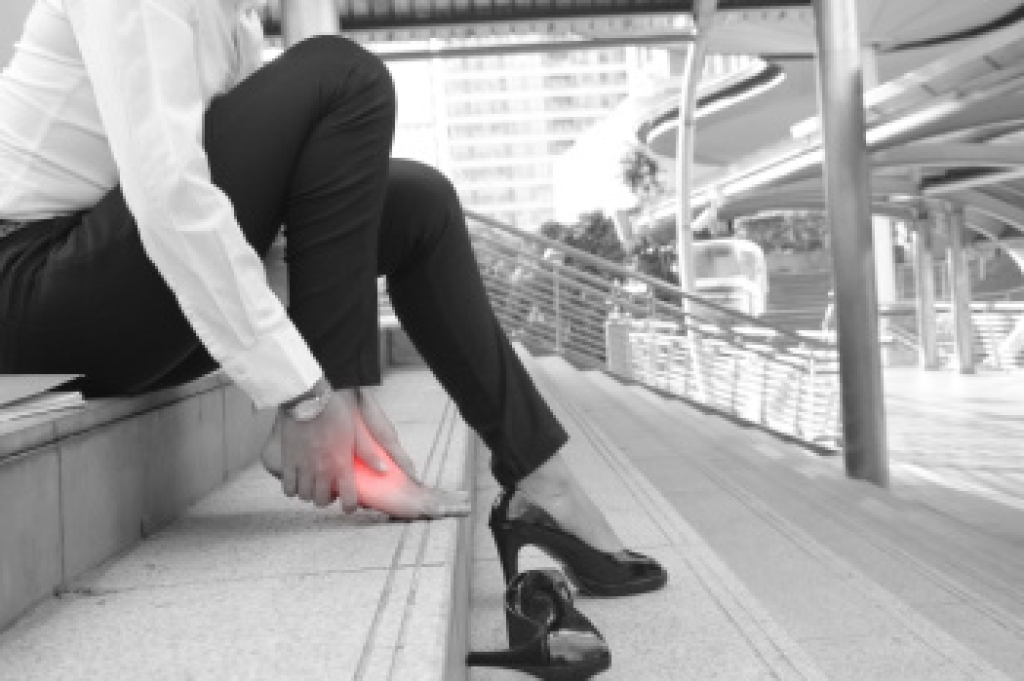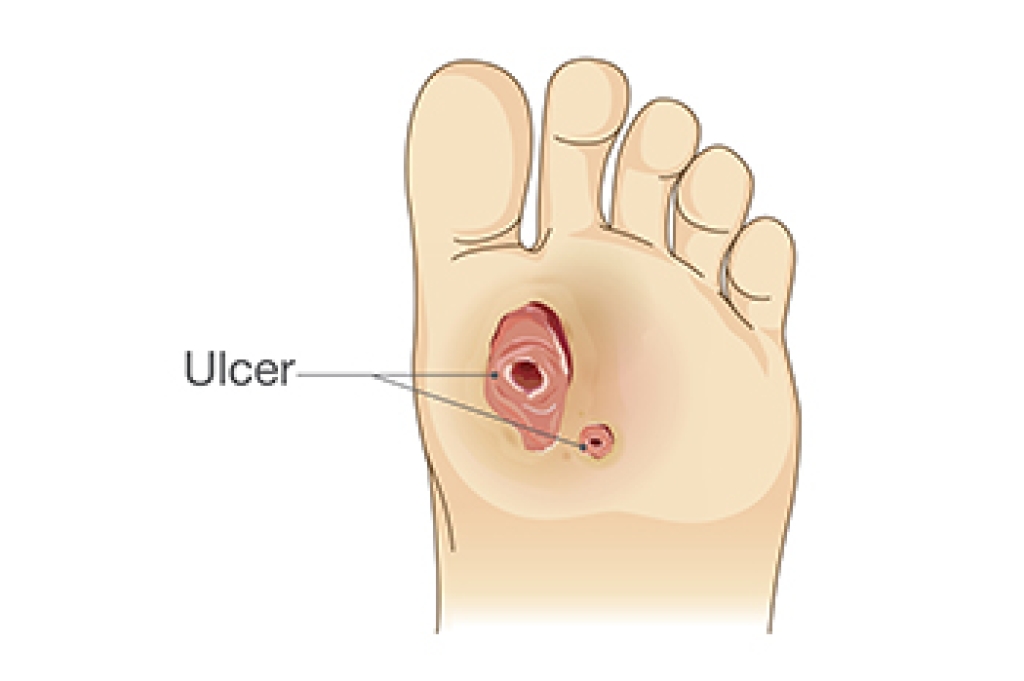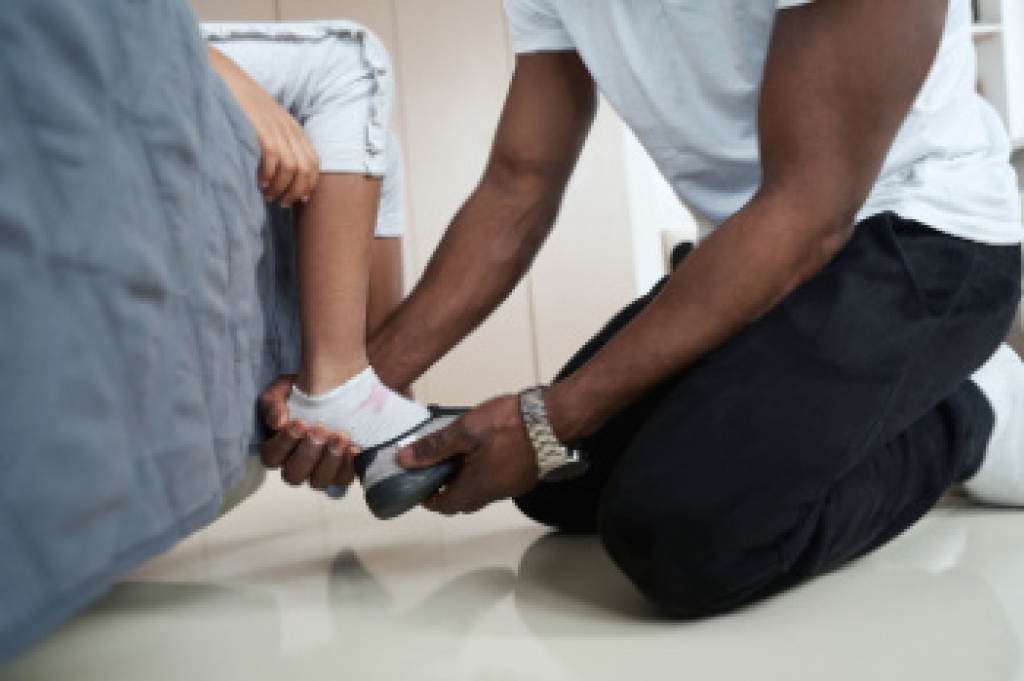Connect With Us
Blog
Choosing the Right Walking and Running Shoe for Your Feet

Selecting the right walking or running shoe begins with understanding your arch and gait type. People with flat feet often need stability shoes, while those with high arches may benefit from extra cushioning. A gait analysis helps determine how your foot strikes the ground, which affects shoe choice. Walking shoes usually have more cushion in the heel and less in the forefoot because the heel absorbs the most impact during walking. Running shoes distribute support differently due to varied stride patterns. A podiatrist can assess your foot structure and gait, then recommend the best footwear or custom inserts. For optimal comfort and injury prevention, it is suggested that you visit a podiatrist to ensure your shoes meet your unique foot needs.
For more information about walking shoes versus running shoes, consult with Scott Samera, DPM from Samera / Foot + Ankle. Our doctor can measure your feet to determine what your needs are and help you find an appropriate pair of footwear.
Foot Health: The Differences between Walking & Running Shoes
There are great ways to stay in shape: running and walking are two great exercises to a healthy lifestyle. It is important to know that running shoes and walking shoes are not interchangeable. There is a key difference on how the feet hit the ground when someone is running or walking. This is why one should be aware that a shoe is designed differently for each activity.
You may be asking yourself what the real differences are between walking and running shoes and the answers may shock you.
Differences
Walking doesn’t involve as much stress or impact on the feet as running does. However, this doesn’t mean that you should be any less prepared. When you’re walking, you land on your heels and have your foot roll forward. This rolling motion requires additional support to the feet.
Flexibility – Walking shoes are designed to have soft, flexible soles. This allows the walker to push off easily with each step.
If you have any questions, please feel free to contact our office located in Lake City and Branford, FL . We offer the newest diagnostic and treatment technologies for all your foot care needs.
How High Heels Affect Foot Health

Wearing high heels regularly can lead to a range of foot and ankle problems. The forward pitch of the foot in high heels places significant pressure on the forefoot, often leading to bunions, hammertoes, corns, and neuromas. Prolonged wearing of high heels can also contribute to plantar fasciitis, a painful condition involving the tissue on the bottom of the foot. High heels limit ankle mobility, which increases strain on the Achilles tendon and calf muscles. Over time, this can shorten and tighten the tendon, raising the risk of tendon tears and muscle cramping. The altered posture caused by high heels shifts the body's alignment and places extra stress on the ankle joints, leading to pain or instability. A podiatrist can assess the impact of wearing high heels on foot structure, recommend custom inserts, and determine whether surgery is needed for long-term problems. If you are experiencing foot or ankle pain from wearing high heels, it is suggested that you schedule an appointment with a podiatrist for an exam and appropriate treatment options.
High heels have a history of causing foot and ankle problems. If you have any concerns about your feet or ankles, contact Scott Samera, DPM from Samera / Foot + Ankle. Our doctor can provide the care you need to keep you pain-free and on your feet.
Effects of High Heels on the Feet
High heels are popular shoes among women because of their many styles and societal appeal. Despite this, high heels can still cause many health problems if worn too frequently.
Which Parts of My Body Will Be Affected by High Heels?
- Ankle Joints
- Achilles Tendon – May shorten and stiffen with prolonged wear
- Balls of the Feet
- Knees – Heels cause the knees to bend constantly, creating stress on them
- Back – They decrease the spine’s ability to absorb shock, which may lead to back pain. The vertebrae of the lower back may compress.
What Kinds of Foot Problems Can Develop from Wearing High Heels?
- Corns
- Calluses
- Hammertoe
- Bunions
- Morton’s Neuroma
- Plantar Fasciitis
How Can I Still Wear High Heels and Maintain Foot Health?
If you want to wear high heeled shoes, make sure that you are not wearing them every day, as this will help prevent long term physical problems. Try wearing thicker heels as opposed to stilettos to distribute weight more evenly across the feet. Always make sure you are wearing the proper shoes for the right occasion, such as sneakers for exercising. If you walk to work, try carrying your heels with you and changing into them once you arrive at work. Adding inserts to your heels can help cushion your feet and absorb shock. Full foot inserts or metatarsal pads are available.
If you have any questions, please feel free to contact our office located in Lake City and Branford, FL . We offer the newest diagnostic and treatment technologies for all your foot care needs.
Diabetic Foot Ulcers and Podiatric Care

Diabetic foot ulcers are open wounds or sores that typically develop on the bottom of the foot in diabetics. They are caused by a combination of poor circulation, nerve damage, and repetitive pressure or injury to the foot. Risk factors include long-term diabetes, smoking, poorly controlled blood sugar, and improper footwear. Symptoms may include redness, swelling, drainage, or a foul odor. These ulcers can become infected and lead to serious complications. A podiatrist plays a key role in managing diabetic foot ulcers by providing wound care, pressure relief, and guidance on foot hygiene. If you have diabetes, it is strongly suggested that regular visits to a podiatrist are part of a routine plan that can help you to manage existing foot ulcers.
Wound care is an important part in dealing with diabetes. If you have diabetes and a foot wound or would like more information about wound care for diabetics, consult with Scott Samera, DPM from Samera / Foot + Ankle. Our doctor will assess your condition and provide you with quality foot and ankle treatment.
What Is Wound Care?
Wound care is the practice of taking proper care of a wound. This can range from the smallest to the largest of wounds. While everyone can benefit from proper wound care, it is much more important for diabetics. Diabetics often suffer from poor blood circulation which causes wounds to heal much slower than they would in a non-diabetic.
What Is the Importance of Wound Care?
While it may not seem apparent with small ulcers on the foot, for diabetics, any size ulcer can become infected. Diabetics often also suffer from neuropathy, or nerve loss. This means they might not even feel when they have an ulcer on their foot. If the wound becomes severely infected, amputation may be necessary. Therefore, it is of the upmost importance to properly care for any and all foot wounds.
How to Care for Wounds
The best way to care for foot wounds is to prevent them. For diabetics, this means daily inspections of the feet for any signs of abnormalities or ulcers. It is also recommended to see a podiatrist several times a year for a foot inspection. If you do have an ulcer, run the wound under water to clear dirt from the wound; then apply antibiotic ointment to the wound and cover with a bandage. Bandages should be changed daily and keeping pressure off the wound is smart. It is advised to see a podiatrist, who can keep an eye on it.
If you have any questions please contact our office located in Lake City and Branford, FL . We offer the newest diagnostic and treatment technologies for all your foot and ankle needs.
The Importance of Proper Shoe Fitting

Wearing properly fitted shoes is essential for maintaining healthy feet and overall well being. Shoes that are too tight, too loose, or poorly structured can lead to a range of problems including blisters, bunions, corns, heel pain, and even joint or back discomfort. Proper shoe fitting supports natural foot movement, improves balance, and reduces strain on muscles and ligaments. It is especially important for people with specific foot conditions or unique foot shapes. A podiatrist can treat various foot conditions, in addition to assessing foot structure, measuring for accurate sizing, and providing guidance on selecting footwear that offers the right support and comfort. If you have foot pain from wearing shoes that do not fit correctly, it is suggested that you contract a podiatrist who can address concerns about existing foot issues.
Finding a properly-fitting shoe is important in reducing injuries and preventing foot problems. For more information about treatment, contact Scott Samera, DPM from Samera / Foot + Ankle. Our doctor will treat your foot and ankle needs.
Proper Shoe Fitting
A common concern when it comes to foot health, having properly fitted shoes can help prevent injuries to the foot. Out feet affect our posture and gait, which in turn affects the biomechanics and overall bodily structure. With 33 joints, 26 bones, and over 100 ligaments, the potential for serious injury is much greater than one realizes. Although the feet cease growth in adulthood, they still change shape as they mature. Here are some factors to consider when it comes to investing in proper fitting shoes:
- Be sure the shoes fit correctly right away
- Ensure the ball of your foot fits comfortably in the widest portion of the shoes
- Even though they may look fashionable, improper fitting shoes can either create adverse conditions or exacerbate existing ones you may already have
- Walk along a carpeted surface to ensure the shoes comfortably fit during normal activity
Keeping in mind how shoes fit the biomechanics of your body, properly-fitting shoes are vitally important. Fortunately, it is not difficult to acquire footwear that fits correctly. Be sure to wear shoes that support the overall structure of your body. Do your feet a favor and invest in several pairs of well-fitted shoes today.
If you have any questions, please feel free to contact our office located in Lake City and Branford, FL . We offer the newest diagnostic and treatment technologies for all your foot care needs.
Blog Archives
- 2026
- 2025
- 2024
- 2023
- 2022





